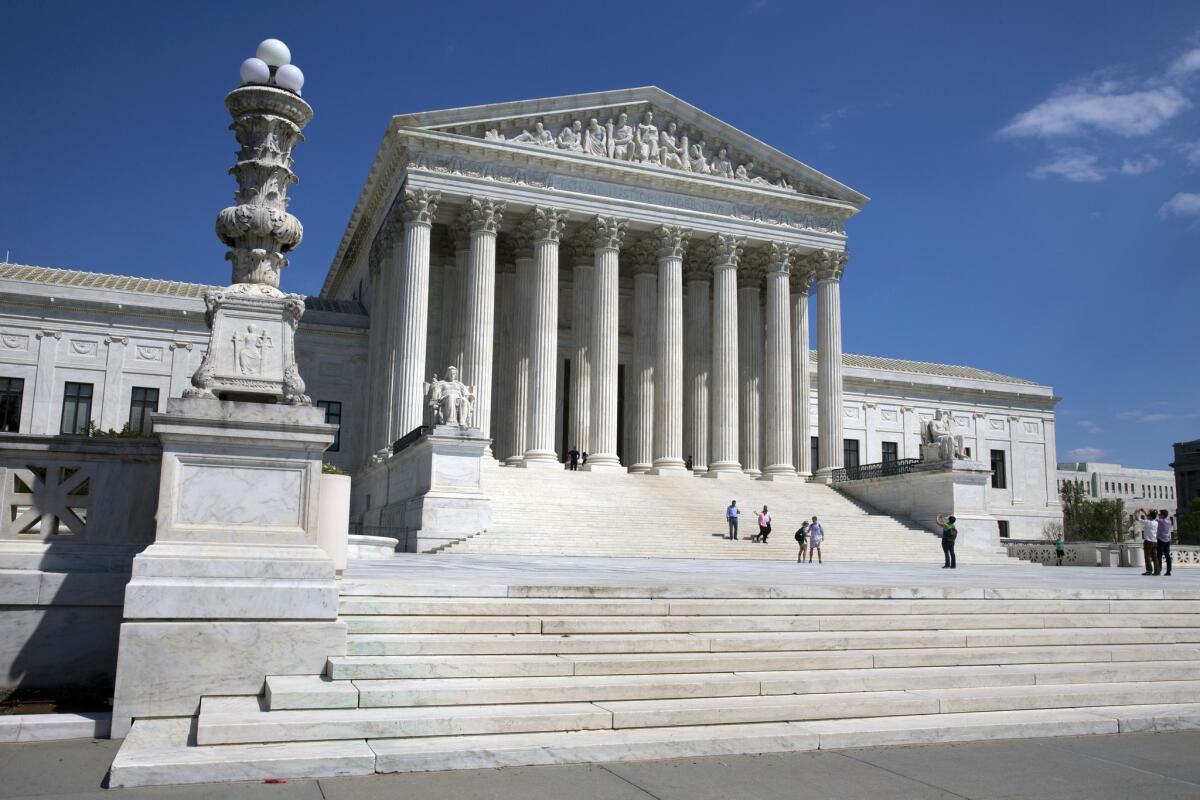Justices split on whether police can search cellphones during arrests

- Share via
WASHINGTON — Confronting a right-to-privacy question in the new world of smartphones, the Supreme Court justices sounded closely split Tuesday on whether police officers should be free to search through the phone of any person who is arrested.
Justice Elena Kagan, the newest and youngest member of the high court, urged her colleagues to insist on protecting privacy.
“People carry their entire lives on their cellphone,” she said during the argument involving a San Diego case. If there are no limits, a police officer could stop a motorist for not having seat belt buckled and download a huge amount of information, looking for some evidence of wrongdoing, she warned.
Such a search could include “every single email, all their bank records, all their medical records,” she said, as well as GPS data that would show everywhere they had traveled recently.
But Justice Samuel A. Alito Jr. pressed the opposite view. Police who make an arrest have always been permitted to check a wallet, a billfold or a purse, and that might include personal photos.
“What’s the difference if the photos are in a billfold or on smartphone?” he asked. The smartphone may include more, but “I don’t see there’s much difference,” he said.
Several justices said they faced a stark choice: either permit officers to search phones at the scene of every arrest, or require them to always obtain a search warrant from a magistrate before looking inside a phone, laptop computer or other digital device.
It was not clear during two hours of argument where the majority would line up.
In the case, a police officers stopped a car driven by David Riley because its license tag had expired. After discovering that Riley’s driver’s license was invalid, the officer found guns in the car. He then examined Riley’s smartphone and found evidence that the man was part of a gang that had carried out a drive-by shooting.
Riley was convicted of attempted murder and gang involvement, and the California courts upheld his conviction. The Supreme Court is considering whether the search of his smartphone violated the 4th Amendment’s ban on unreasonable searches.
Stanford law professor Jeffrey Fisher, representing Riley, urged the justices to require officers to obtain a search warrant before examining a smartphone.
But California Solicitor General Edward DuMont said the justices should uphold the authority of police officers to check smartphones when they make an arrest.
Officers will not check phones when someone is stopped for a minor offense, like a seat belt violation, he said. If police make an arrest for a serious crime, they should be allowed check for evidence, including what is contained in the phone, he said.
More to Read
Sign up for Essential California
The most important California stories and recommendations in your inbox every morning.
You may occasionally receive promotional content from the Los Angeles Times.











